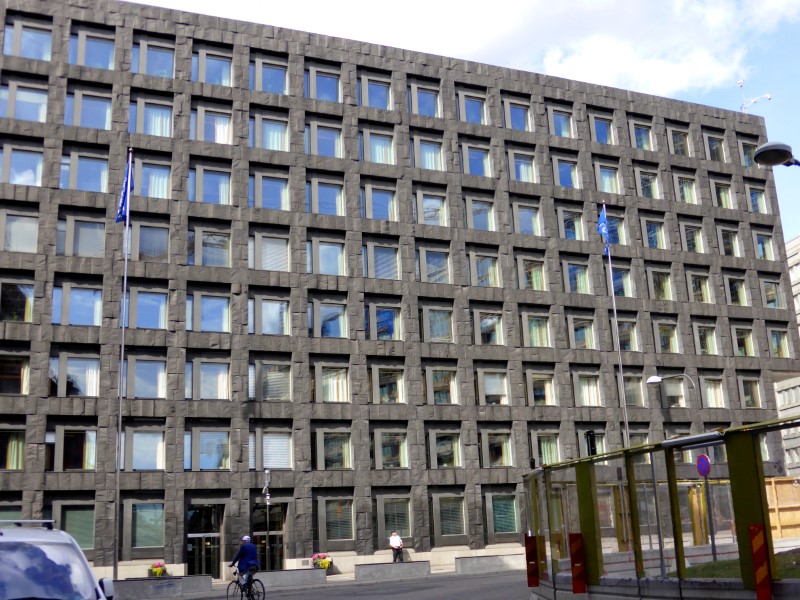(Bloomberg) -- Sweden’s Riksbank stuck with a forecast of years of zero interest rates, and pledged to continue its historic asset purchase program as it navigates its way through the Covid crisis.
“The way back is long and fraught with uncertainty,” the Stockholm-based bank, which kept its main rate at zero as expected, said on Tuesday.
“To provide support to economic developments and help inflation to rise towards the target, the Riksbank is continuing its asset purchases and offering liquidity in all the programs launched so far this year. The repo rate is held unchanged at zero,” the bank said.
The Riksbank has repeatedly made clear it thinks bond purchases are a better way to support the economy in the current crisis than rate cuts. The bank has pledged to buy 500 billion kronor ($56 billion) worth of securities, taking it into uncharted territory in its experimentation with unconventional policies.
After Tuesday’s announcement, it seems clear that “QE remains the prime policy tool if things would turn out worse” than the bank’s forecasts indicate, according to Claes Mahlen, head of trading strategy at Handelsbanken in Stockholm.
TOPLive: Follow Riksbank Rate Decision in Real Time
The bank’s decision to purchase corporate bonds has proved particularly controversial. The legal adviser to Sweden’s parliamentary committee responsible for drafting a new Riksbank Act has suggested the program might be unlawful. And investors have warned that the purchases will distort bond prices in a market that’s already rebounded from the Covid crisis.
The Riksbank hired consultants from BlackRock (NYSE:BLK) to help analyze Sweden’s corporate bond market as part of its contested QE plan. But it has refused to share the findings of that study with the public, drawing criticism from market participants.
Read: Sweden Heavily Redacts BlackRock Report on Credit Market Woes
Tuesday’s rate announcement comes a day after Sweden’s government revealed plans to increase public debt to the tune of $12 billion, as part of its efforts to reboot the largest Nordic economy. It’s the latest signal that Sweden is relying increasingly on fiscal policy to steer its way through the Covid crisis.
The Outlook
The Riksbank’s forecast points to zero rates through the third quarter of 2023, which is as far as it guidance goes. The bank raised its GDP estimate for 2020 to a 3.6% contraction from a 4.5% decline previously. The rebound in 2021 will also be slightly stronger than expected earlier, at 3.7% growth.
Inflation will stay below the bank’s 2% target throughout the forecast horizon, according to the Riksbank.
“The September report confirms our view that the Riksbank board is in a wait and see mode after introducing a string of support measures between March and July,” analysts at SEB said in a note. “Our main scenario is that the Riksbank will continue the QE-program according to current plans, but we think that the bar for expanding the program is low if there are any signs that the recovery is derailed. A rate cut does not seem to have come any closer and we predict the repo rate to be unchanged for the foreseeable future.”
As in previous statements, the Riksbank said it is keeping the door open for rate cuts.
“The Riksbank is prepared to continue to use the tools at its disposal to provide support to the economy and inflation,” it said. “The repo rate can also be cut if this is assessed to be an effective measure, particularly if confidence in the inflation target were to be threatened.”
(Adds reference to GDP forecast, economist comment and details of Riksbank rate outlook)
©2020 Bloomberg L.P.
